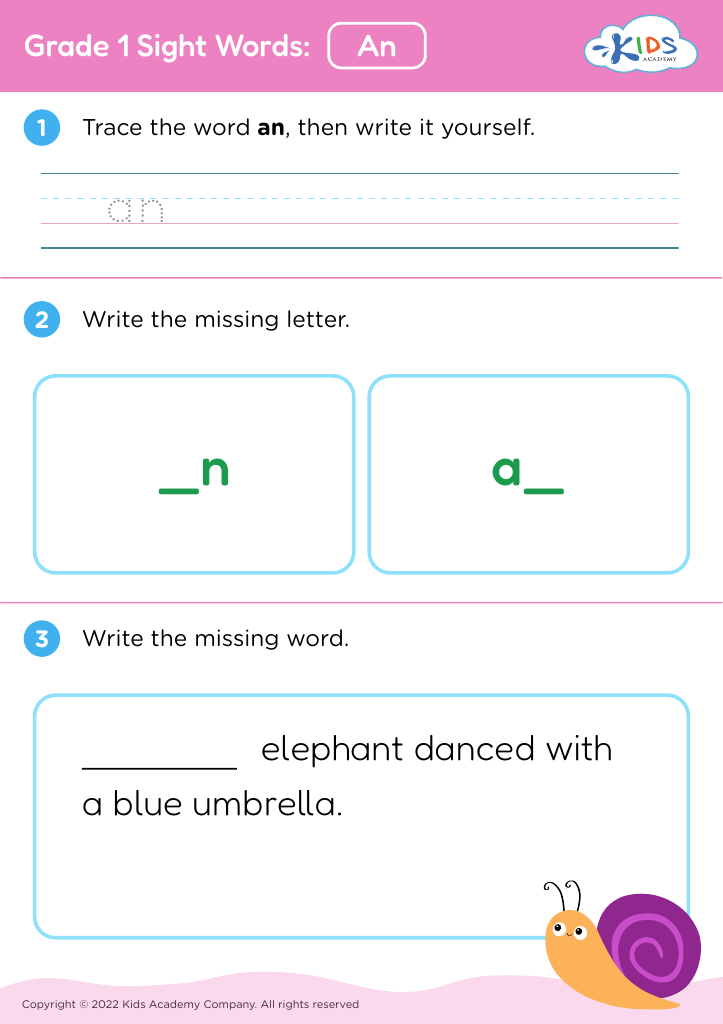Fraction Addition Building Vocabulary Worksheets for Ages 6-8
3 filtered results
-
From - To
Enhance your child's understanding of fractions with our engaging Fraction Addition Building Vocabulary Worksheets, designed specifically for ages 6-8. These worksheets simplify the concept of adding fractions, making it fun and accessible. With vibrant illustrations and easy-to-follow instructions, kids will develop essential math skills while expanding their vocabulary. Each activity encourages critical thinking and problem-solving, ensuring a solid foundation in fraction addition. Ideal for both classroom and home learning, our resources empower young learners to tackle math challenges with confidence. Start your child’s journey to mastering fractions today with these interactive and educational worksheets!
Understanding fraction addition is crucial for children ages 6-8 as it lays the foundation for more advanced mathematical concepts. Therefore, parents and teachers should prioritize building vocabulary around this topic. When children grasp terminology like "numerator," "denominator," "common denominator," and "equivalent fractions," they become more equipped to comprehend and solve problems involving fractions.
Effective vocabulary building fosters communication and collaboration in the classroom and at home. When children effectively articulate their understanding, they can ask questions and engage in discussions, enhancing their learning experience. Furthermore, a robust mathematical vocabulary aids in developing critical thinking skills, enabling kids to approach fraction addition logically and systematically.
Mastering the language of fractions also helps to demystify math, making it less intimidating and more approachable. When parents and teachers emphasize vocabulary alongside fraction concepts, they boost children's confidence and interest in mathematics. This confidence is essential for promoting a lifelong positive relationship with the subject. In an increasingly numerical world, fluency in math language is critical, providing children with tools for academic success and everyday problem-solving. Thus, a focused effort on building vocabulary around fraction addition is key for holistic math education for young learners.



















